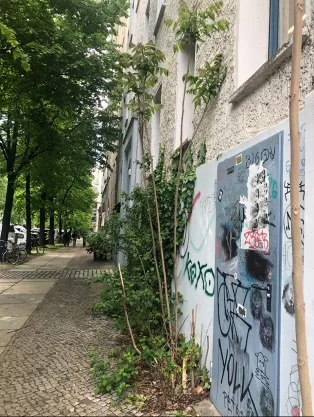
- This event has passed.
Seminar: Human-Nature Encounters in Urban Space

Photo: Megan Lynn Maurer
Seminar description
In this era of overlapping crises, the future of cities remains uncertain. Urban nature-based solutions (NbS) and green infrastructure (GI) have emerged as key strategies to address climate change, biodiversity loss, public health concerns, and rapid urbanization. Both approaches emphasize increasing the presence of nature in urban environments.
Historically, cities have been spaces where boundaries are both challenged and reinforced—whether social boundaries related to race, class, and gender, or conceptual divisions between humans and nature. NbS and GI offer opportunities to rethink these boundaries by exploring new ways for humans and more-than-human life to coexist, while also questioning the spatial and conceptual separations between people and nature.
However, as urban nature becomes more visible and widespread, it can also intensify conflicts over space and reinforce boundary-making. In particular, distinctions between “good” nature—manageable and useful to humans—and “bad” nature—unruly and resistant—become more pronounced.
In this seminar, Megan Lynn Maurer examines this tension through examples from New York City, focusing on street tree maintenance and perceptions of ecosystem disservices. She explores how everyday experiences become sites where human-nature boundaries are negotiated and reshaped, even as urban planning discourses continue to draw lines between desirable and undesirable forms of nature. Maurer concludes by reflecting on the gap between how urban NbS and GI are framed in policy and planning, and how residents actually perceive and interact with urban nature—offering insights into how these relationships and meanings might evolve.
The presentation will be followed by a discussion with the Öresund Comparative Borderland Research Group, and questions from participants. The seminar is held on Zoom and open to the public. Read more about the event here.
Megan Lynn Maurer
Megan Lynn Maurer is an Assistant Professor of Digital Green Transitions at the IT University of Copenhagen. Trained as a cultural anthropologist, her research explores the relationships between people and plants in urban environments. She works across disciplines to examine how plant life in cities shapes human experiences of nature, everyday life, and future imaginaries in the context of climate crisis.
About the series
The seminar series Border Allies, Boundary Alliances is arranged by the Öresund Comparative Borderland Research Group, funded by CEMES. Find the complete program here: www.cors.lu.se/en/border-allies-boundary-alliances
We have three regular events
- 1. The TiP Salon runs weekly during the semester. We convene around constructive engagement with new publications, visitors to the group and work in progress. The meeting is open, and runs at 12:00-13:00 on Wednesdays. Please contact Christopher Gad to sign up to the email list.
- 2. Shut up and Write takes place every week on Wednesdays from 13:15 to 17:00. Based on the model promoted by Inger Mewburn, we commit to writing projects on the whiteboard and write in shorter sessions with breaks.
- 3. The TiP Writing Workshop takes place twice a semester, where contributions from all members of TiP are welcome. The purpose of the workshop is to give and receive feedback on ‘in progress’ work. Practically the workshop entails reading all participants’ submission, being a ‘caring opponent’ on one particular text, and participating in constructive debate about the texts.